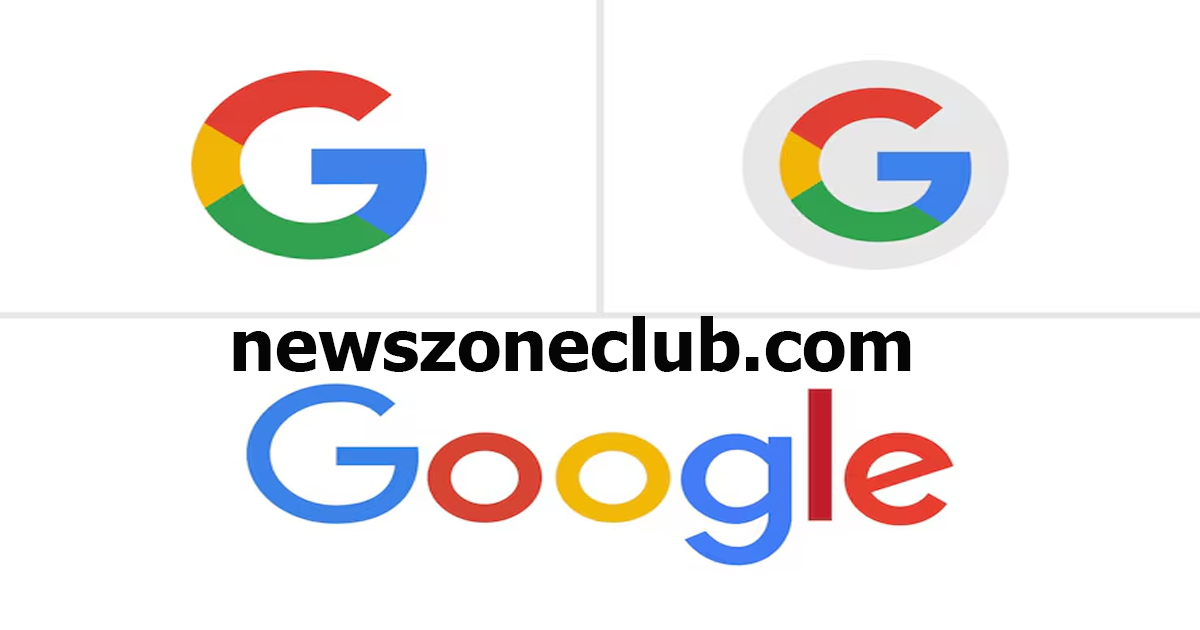Introduction
In the digital age, Google has emerged as a transformative force, fundamentally reshaping modern technology and society. As the preeminent search engine and a technological powerhouse, Google’s influence permeates every aspect of our lives, from how we access information to how we interact with the world around us. This article delves into the profound impact of Google on both technology and society, highlighting its significant contributions and the challenges it poses.
Google’s Technological Innovations
Revolutionizing Search Engine Technology
Google’s inception revolutionized the way we search for information online. The company’s PageRank algorithm, which ranks web pages based on their relevance and link structure, set a new standard for search engines. This innovation made it easier for users to find the most pertinent information quickly and efficiently. Over time, Google has continually refined its search algorithms, incorporating machine learning and artificial intelligence to provide more accurate and personalized search results.
Advancements in Artificial Intelligence and Machine Learning
Google is at the forefront of artificial intelligence (AI) and machine learning advancements. The company’s AI research lab, Google Brain, has produced groundbreaking work in natural language processing, image recognition, and autonomous systems. Products like Google Assistant, which leverages AI to provide voice-activated assistance, have become integral to everyday life. Furthermore, Google’s TensorFlow, an open-source machine learning framework, has democratized AI, enabling researchers and developers worldwide to build sophisticated AI models.
Cloud Computing and Data Services
Google Cloud Platform (GCP) has become a key player in the cloud computing industry. Offering a range of services from data storage to advanced analytics, GCP empowers businesses to leverage scalable computing resources and sophisticated data tools. BigQuery, Google’s fully managed data warehouse, allows for real-time analysis of massive datasets, transforming how companies handle and interpret data.
Innovations in Mobile Technology
Android, Google’s mobile operating system, dominates the global smartphone market. With its open-source nature, Android has fostered a diverse ecosystem of applications and services. Google’s continuous updates and improvements to Android enhance user experience, security, and functionality, making smartphones more accessible and versatile.
Google’s Influence on Society
Changing the Way We Access Information
Google has fundamentally altered how we access information. The convenience of Google Search means that users can find answers to their questions almost instantaneously. This has had profound implications for education, as students and educators alike rely on Google to supplement learning and research. Moreover, Google’s commitment to organizing the world’s information and making it universally accessible has transformed the dissemination of knowledge.
Impact on Communication and Connectivity
Google’s suite of communication tools, including Gmail, Google Meet, and Google Chat, has redefined how we connect and communicate. These tools facilitate seamless communication across the globe, supporting remote work and virtual collaboration. During the COVID-19 pandemic, Google Meet became an essential platform for virtual meetings, underscoring Google’s role in maintaining societal functions during crises.
Shaping Digital Advertising and E-commerce
Google’s advertising platforms, AdWords and AdSense, have revolutionized digital marketing. By leveraging user data to deliver targeted advertisements, Google has created a highly effective advertising ecosystem. This not only drives revenue for businesses but also supports a wide range of free online services. Additionally, Google Shopping has streamlined online retail, making it easier for consumers to find and purchase products.
Influence on Privacy and Data Security
Google’s extensive data collection practices have sparked ongoing debates about privacy and data security. While Google’s services provide significant benefits, they also raise concerns about how personal data is used and protected. The company has taken steps to enhance user privacy, such as introducing stronger encryption and offering tools for managing data. However, the balance between innovation and privacy remains a critical issue.
Google’s Role in Education and Research
Empowering Education through Technology
Google for Education offers a suite of tools and resources that enhance learning experiences. Google Classroom, Chromebooks, and G Suite for Education provide educators with powerful tools to manage classes, collaborate with students, and streamline administrative tasks. These technologies have been particularly impactful in remote and hybrid learning environments, making education more accessible and interactive.
Supporting Scientific Research
Google’s commitment to advancing knowledge extends to scientific research. Google Scholar provides a robust platform for researchers to access scholarly articles and publications. Moreover, Google’s AI and machine learning tools are widely used in research to analyze data and generate insights, driving innovation across various fields.
Google’s Environmental and Social Initiatives
Sustainability Efforts
Google has made significant strides in sustainability. The company has committed to operating on carbon-free energy by 2030 and has invested in renewable energy projects worldwide. Google’s data centers are among the most energy-efficient in the world, utilizing advanced cooling techniques and AI to optimize energy use.
Social Impact Programs
Google.org, the philanthropic arm of Google, supports initiatives aimed at addressing global challenges such as education, economic opportunity, and disaster response. Through grants and partnerships, Google.org empowers nonprofits and social enterprises to leverage technology for social good.
Challenges and Controversies
Antitrust Issues and Market Dominance
Google’s dominance in various sectors has led to antitrust scrutiny and legal challenges. Critics argue that Google’s market power stifles competition and innovation. Regulatory bodies in the United States, Europe, and other regions are investigating Google’s business practices to ensure a fair and competitive marketplace.
Content Moderation and Misinformation
As a major platform for information dissemination, Google faces challenges related to content moderation and the spread of misinformation. The company has implemented measures to combat fake news and harmful content, such as improving algorithms and collaborating with fact-checking organizations. However, the effectiveness of these efforts remains a topic of ongoing debate.
Conclusion
Google’s impact on modern technology and society is profound and multifaceted. From revolutionizing search engines and advancing AI to reshaping communication and education, Google’s innovations have transformed our world. While the company’s contributions bring numerous benefits, they also pose significant challenges, particularly in areas like privacy, market competition, and content moderation. As Google continues to evolve, it will play a crucial role in shaping the future of technology and society.
Frequently Asked Questions
1. How has Google changed the way we access information?
Google has revolutionized information access by providing a powerful search engine that can quickly retrieve relevant information from the vast internet. Its sophisticated algorithms, like PageRank, ensure that the most pertinent results appear at the top, making it easier for users to find what they need efficiently. Additionally, Google’s commitment to organizing the world’s information and making it universally accessible has transformed educational and research activities, making information readily available to everyone.
2. What are Google’s major contributions to artificial intelligence and machine learning?
Google has made significant strides in AI and machine learning through its research lab, Google Brain, and products like Google Assistant. Innovations in natural language processing, image recognition, and autonomous systems are some of its notable contributions. TensorFlow, an open-source machine learning framework developed by Google, has become a crucial tool for researchers and developers worldwide, facilitating the creation of advanced AI models.
3. How does Google Cloud Platform benefit businesses?
Google Cloud Platform (GCP) offers a wide range of services, including data storage, advanced analytics, and scalable computing resources. It enables businesses to leverage powerful tools like BigQuery for real-time data analysis, enhancing their data management and operational efficiency. GCP’s robust infrastructure supports various business needs, from small startups to large enterprises, helping them innovate and grow.
4. In what ways has Google impacted mobile technology?
Google’s Android operating system dominates the global smartphone market, providing an open-source platform that fosters a diverse ecosystem of applications and services. Continuous updates to Android enhance user experience, security, and functionality, making smartphones more accessible and versatile. This widespread adoption of Android has driven significant advancements in mobile technology.
5. What role does Google play in digital advertising and e-commerce?
Google’s advertising platforms, AdWords and AdSense, have transformed digital marketing by enabling highly targeted advertisements based on user data. This system drives revenue for businesses and supports a range of free online services. Additionally, Google Shopping simplifies the online retail experience, making it easier for consumers to find and purchase products, thus influencing the e-commerce landscape.
6. How does Google address privacy and data security concerns?
Google has implemented various measures to enhance user privacy and data security, such as stronger encryption and tools for managing personal data. Despite these efforts, concerns about the extent of data collection and its use persist. Google continues to balance innovation with privacy, striving to protect user information while providing valuable services.
7. What are Google’s contributions to education and research?
Google for Education offers tools like Google Classroom, Chromebooks, and G Suite for Education, which enhance learning and administrative processes. These technologies are particularly impactful in remote and hybrid learning environments. Google Scholar provides access to scholarly articles, supporting academic research. Additionally, Google’s AI and machine learning tools are widely used in scientific research for data analysis and generating insights.
8. How is Google involved in sustainability and social initiatives?
Google has committed to operating on carbon-free energy by 2030 and invests in renewable energy projects globally. Its data centers are highly energy-efficient, utilizing advanced cooling techniques and AI for optimal energy use. Google.org, the philanthropic arm of Google, supports initiatives addressing education, economic opportunity, and disaster response, empowering nonprofits and social enterprises to use technology for social good.
9. What challenges and controversies does Google face?
Google faces antitrust scrutiny and legal challenges due to its market dominance, with critics arguing that it stifles competition. Regulatory bodies are investigating its business practices to ensure fair competition. Additionally, Google deals with issues related to content moderation and misinformation. The company has implemented measures to combat fake news and harmful content, but the effectiveness of these efforts remains a subject of debate.
10. How does Google influence global communication and connectivity?
Google’s communication tools, such as Gmail, Google Meet, and Google Chat, facilitate seamless global communication and collaboration. These tools support remote work and virtual meetings, playing a critical role in maintaining connectivity, especially during crises like the COVID-19 pandemic. They enable users to communicate effortlessly across distances, enhancing productivity and interaction.
Keep Reading:
The Shocking Story of Killers of the Flower Moon





